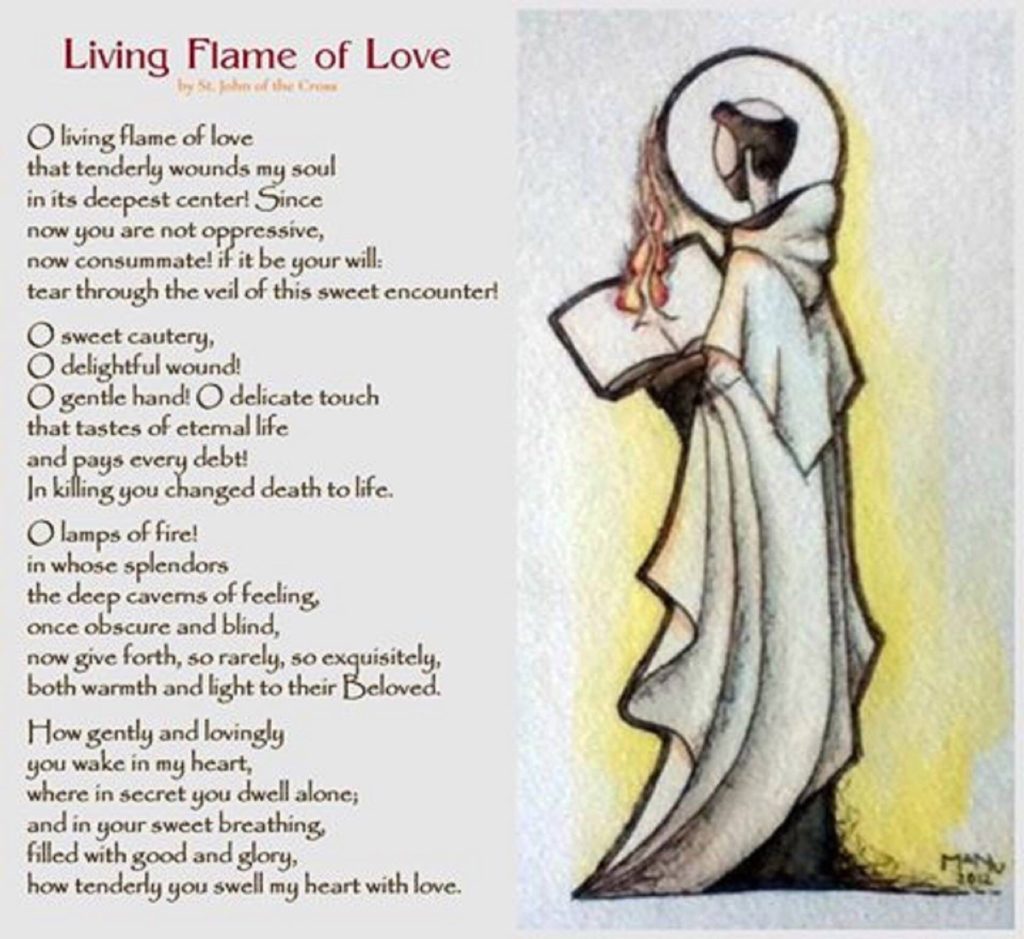At such a time, faith, like all the other virtues, is quite numbed and asleep. It is not lost, for the soul has a firm belief in what is held by the Church; but, though it can testify with the mouth, it seems in other respects to be oppressed and stupefied, and it feels as if it knows God only as something of which it has heard from afar off. So lukewarm does its love become that, if it hears Him spoken of, it listens, believing that He is Who He is, because this is held by the Church, but it retains no memory of its own experiences of Him. To go and say its prayers, or to be alone, only causes it greater anguish, for the inward torture which it feels, without knowing the source of it, is intolerable; and, in my opinion, bears some slight resemblance to hell. Indeed this is a fact, for the Lord revealed it to me in a vision: the soul is inwardly burning, without knowing who has kindled the fire, nor whence it comes, nor how to flee from it, nor with what to put it out. In vain does it seek a remedy in reading: it might as well be unable to read at all. Once I chanced to take up the Life of a saint, to see if I could become absorbed in the reading of it and find comfort in thinking of the saint’s sufferings. But I read four or five lines as many times, and, though they were in Spanish, I understood less of them at the end than at the beginning; so I gave it up.
Autobiography of St Teresa of Avila




Recent Comments